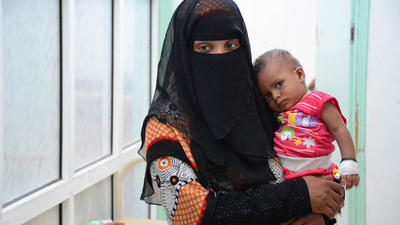Although fighting in eastern Ukraine has reduced since a ceasefire came into effect on 15th February, shelling continues in some areas and medical needs remain urgent on both sides of the frontline.
Since mid-April 2014, at least 5,820 people have been killed and 15,270 wounded in the conflict area of eastern Ukraine.
Here, we meet some of the many people whose lives have been turned upside down because of the conflict.
Antonya
“I’ve been living in Kuteyniekovo since the 1960s. My husband died 17 years ago and I don’t have any children. I haven’t received my pension for eight months.
The food in my cellar was stolen, but some people helped me by bringing some potatoes and biscuits, and I received some humanitarian aid twice. I couldn’t manage to buy coal this year, so I heat the house with some firewood.
I have many health problems: angina, and problems with my ears, sinuses and joints. I can’t afford to buy medicines. I received some drugs I needed from MSF, but before that I lived without them. I was just using plants to treat myself.
Our village was shelled in August. Once I went down to the cellar, but the sound of the shelling was so loud I preferred just to lie on my bed instead.
I can’t leave, I’m too old. I was born here and I’m going to die here. I worked hard all my life. I’ve now experienced two wars. I have buried my husband and my baby daughter who died when she was born. Nothing good can happen here, I don’t have hope.”
Serguei
"I contracted measles when I was eight and lost my sight. I have been living in Lugansk for 32 years.
I moved here just after graduating from a special school for handicapped kids.
I was doing some work making lightbulb sockets. It was a regular job, I was paid and I also received a pension from the government. Sometimes, the work was sporadic and the salary as well, but with the pension, I had everything I needed.
Now the business here is not working anymore, so I don’t get a salary. Since July, I haven’t received the pension. We received some money once in October, but that’s it. People now have to rely on humanitarian aid, but for the past months we haven’t been receiving anything because Luhansk is isolated.
We now live in very difficult conditions: we have to eat the food we stored before the war, the sugar and the cereals we have. Fruit and meat are too expensive, we just buy bread and some dairy products we get at cheap price from a local dairyman. I don’t know how long we can keep holding on.
I stayed in Lugansk during the war in the summer. There was a lot of shelling in the district where we live, but it was impossible to go to the basement: how can you go quickly to the basement when you are blind? We didn’t have fresh water, we could get some bread from the shop or distributed by charities, but some days it was impossible to leave the apartment.
My wife is suffering from a chemical burn she had many years before but we can’t get the necessary medication from the local pharmacy anymore. She still has some from her stock, but only for the next six weeks."
Svetlana
“Many people left Kuteynikovo when the conflict started, the majority went to Russia. People have come back, but not everyone.
Before there were 1,600 people in the village, now there’s around 1,000. There were many young people, but they’ve mostly left, so now this is a village of elderly people.
So the most common health problems here are heart disease, high blood pressure, diabetes, and problems with joints. It is very difficult for diabetic patients to get insulin. There was a pharmacy here, but it was closed because of the problems with getting supplies.
In September our village doctor was transferred to another town, Metalist, because the health centre there serves more villages. He comes back once a week and now Dr Wael from MSF comes twice a week.
We’re very happy to have his help. It’s very important that the drugs are given for free because people do not have money. Businesses are not functioning so there is a lot of unemployment and people are poor. Dr Wael is a kind person, he’s become like a member of our family. He always comes here in a good mood and even after seeing 100 patients, he’s still smiling.
We’ve been working without salaries since the summer. We received it once in January. People often ask me why I still work without receiving any money. I just say I belong to a kind of people who do their job despite the difficulties. People here are very strong. We survived for months just from growing some vegetables in our yards. My husband was able to go to Russia to work and bring some money here.
Although our village was shelled in August, I didn’t leave. Kuteynikovo is my home, I can’t forget it. My house is here, my grandchildren. The shelling came in the morning and at night; we didn’t know when to expect the next bombs. There was no electricity, no water. It was very scary.
Now it’s quiet, but I don’t think it’s the end. People here live in constant fear that the fighting will start again. If the shelling returns, I won’t stay here. I will run from the war because it’s impossible to experience it again.”





